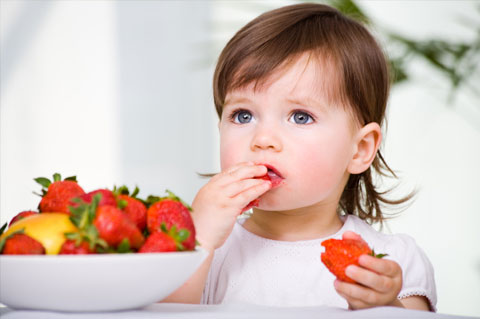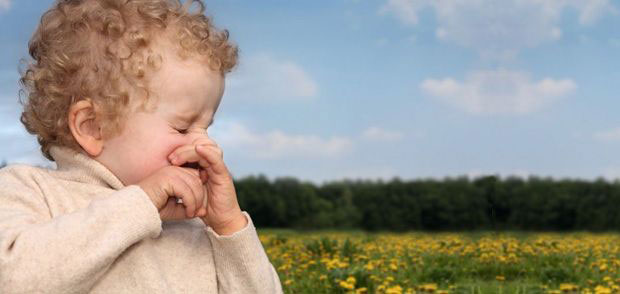Childhood allergies are on the rise. If you have a child who has allergies, you are among many. Allergies are one of the most common illnesses in children, and many times go untreated, or not diagnosed for many years. Its also one of the longest chronic illnesses for children. Some allergies do disappear as a child grows older, but many do not, and can last a lifetime. It’s important that parents are aware of potential allergies in their children. Knowing the symptoms, and possible behavior of allergic children, is important in diagnosing an allergy in a child.
There are no actual causes for allergies in children. One thing for sure is that if you or the other parent has allergies, the chances are greater that you child may have them too. If there is any family history of allergies, there is a good possibility that your child has some type of allergy as well… It’s still possible that your child has allergies even with out any family history of allergies. It’s just more likely if there is family history of allergies. Studies show that if both parents have allergies, that there is a 60-75 percent chance that the child will have allergies. The percentage drops to 50 percent or less chance if one parent has allergies. If neither parent has allergies, studies show that 10 percent of children will still get allergies. The children of parents with allergies do not always get the same allergies as their parents. It’s very possible that a child can have hay fever, when his parents have a dust allergy. The immune system is what is affected, and this can be in many different ways.

Only a doctor can actually diagnose allergies in children. There are some signs to watch for in your child to determine if they may have an allergy. It’s not always an easy task because allergy symptoms are very similar to other illnesses. Most childhood illnesses only last a few days so if your child is ill often, they may have allergies. Symptoms of allergies affect many things. A constant runny nose, congestion, watery itchy eyes, and wheezing can be a sign of a hay fever allergy. It this happens all year long, it may be a dust or mold allergy. Diarrhea and upset stomachs may not always be the flue. If your child has stomach issues often, it may be a food allergy. These symptoms should be addressed soon because failure to do so could cause your child to have extremely dangerous allergies, and need to be controlled.
Once your child is diagnosed with an allergy treating it will vary depending on the allergen that is affecting your child. Complete avoidance is obviously the best medicine. That’s easy to do sometimes, such as a food allergy, but not when it comes to an environmental allergy. Pet allergies are quite common in children. Like all allergies, pet allergies can be very mild, or quite severe. If the child has a mild pet allergy certain extra things may need to be done. Washing you pet more often, and keeping your house clean, may be enough to control your Childs pet allergy. However if the allergy is more severe, it may require getting rid of you pet which is an awful, yet necessary decision
Other environmental allergies such as dust mite and mold are usually controlled by cleaning the house often. In the case of hay fever, over the counter medications such as antihistamines and decongestants will help your child cope with their symptoms. Staying inside during high pollen counts is the best defense for combating hay fever.

